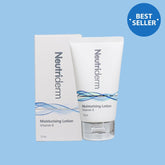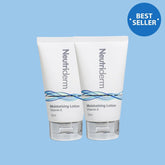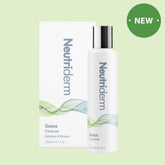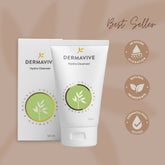Acne is a common skin condition that affects millions of people worldwide. It can be a frustrating and embarrassing experience, especially when it seems like nothing you do can help. However, with the right skincare routine and lifestyle changes, you can effectively manage acne and achieve healthier skin.
In this blog post, we'll delve into the nuances of acne, explore why it occurs, and provide practical tips for building a basic skincare routine tailored to your acne-prone skin. Whether you're dealing with mild breakouts or severe acne, this guide will equip you with the knowledge and tools to control your skin's health.
So, let's dive in and discover how to build a skincare routine that works for you.
Understanding Acne: The Nuances

Acne is a common skin condition characterized by the presence of pimples, blackheads, and whiteheads. It occurs when hair follicles become clogged with oil and dead skin cells, providing an ideal environment for bacteria to grow. While acne is often associated with teenagers, it can affect people of all ages.
Several factors contribute to the development of acne:
1. Hormonal Changes: Hormonal fluctuations, particularly those associated with puberty, pregnancy, and certain medications, can increase sebum production and lead to clogged pores.
2. Genetics: Acne can be hereditary, meaning it's more likely to occur in individuals with a family history of the condition.
3. Diet: While the exact link between diet and acne is still debated, some studies suggest that consuming excessive amounts of sugary and processed foods may contribute to breakouts.
4. Stress: High levels of stress can exacerbate acne by triggering hormonal changes and increasing sebum production.
5. Certain Medications: Some medications, such as corticosteroids and lithium, can cause acne as a side effect.
It's important to note that the severity of acne can vary greatly from person to person. Some individuals may experience mild breakouts, while others may have more severe acne that can lead to scarring.
Building Your Basic Skincare Routine

Now that you have a better understanding of acne and its causes, let's create a basic skincare routine:
1. Gentle Cleanser: Use a mild, non-comedogenic cleanser to gently remove dirt, oil, and makeup without irritating your skin. One of the best cleansers for oily skin that gently cleanses excess sebum and helps in treating congested skin by exfoliating gently, Dermavive Hydra Cleanser is based on natural ingredients like Colloidal Oatmeal and is backed with the power of Sodium PCA that helps cleanse and exfoliate oily skin.
2. Exfoliation: Exfoliate your skin 2-3 times a week with a gentle exfoliant to remove dead skin cells and prevent clogged pores. Neutriderm C scrub is one of the best gentle exfoliators designed especially for the oily skin, it refreshes and rejuvenates skin while also providing your skin with the important antioxidant Vitamin C.
3. Spot Treatment: Apply a spot treatment containing benzoyl peroxide or salicylic acid to acne-prone areas. After applying Neutriderm C Scrub, you can also use Neutriderm Copper Activator which helps in collagen formation and re-affirms skin elasticity, fighting the pigmentation, scares, etc that acne leaves behind.
4. Moisturizer: Even if you have oily skin, it's important to moisturize to keep your skin hydrated and prevent overproduction of sebum. Choose a non-comedogenic moisturizer that won't clog your pores.
One of the best Moisturizers that is not only lightweight and refrains from leaving behind greasy residue is Neutriderm Moisturizing Lotion, it has Vitamin E in its arsenal along with other moisturizing active ingredients, and it helps to reduce the effects of erythema, as well as wrinkles and other signs of aging. This moisturizing lotion repairs the skin from overexposure to the sun and UV rays to maintain a healthy glow.
You can also use Neutriderm’s Oil regulator Lotion which gives you acne-free and clear skin. It contains AHA & BHA that help to remove impurities, soothe skin and reduce redness. The Neutriderm Oil Regulator Lotion has a targeted formula to address acne and seborrhea, helping to reduce the secretion of sebum and eliminate blackheads.
Lifestyle Changes to Combat Acne
While skincare products can be helpful, making certain lifestyle changes can also contribute to clearer skin:
1. Diet: A balanced diet rich in fruits, vegetables, and whole grains can support overall skin health. Limit processed foods, sugary drinks, and excessive dairy consumption, as these have been linked to acne.
2. Stress Management: Stress can exacerbate acne. Practice relaxation techniques like meditation, yoga, or deep breathing to manage stress.
3. Sleep: Aim for 7-9 hours of quality sleep each night. Lack of sleep can disrupt hormone levels and contribute to skin problems.
4. Regular Exercise: Exercise can help reduce stress, improve blood circulation, and promote overall health.
5. Avoid Touching Your Face: Constantly touching your face can transfer dirt and bacteria to your skin, leading to breakouts.
Conclusion
Acne can be a frustrating and often embarrassing experience, but it doesn't have to define you. By understanding the underlying causes, implementing a consistent skincare routine, and making healthy lifestyle choices, you can take control of your skin's health and achieve a clearer, more confident you.
Remember, every journey is unique. What works for one person may not work for another. Don't be afraid to experiment with different products and techniques until you find what suits your skin best. And if you're struggling with persistent acne, don't hesitate to seek advice from a dermatologist for personalized guidance.
With patience, perseverance, and the right approach, you can overcome acne and embrace a brighter, more radiant future.
FAQ
Is acne contagious?
No, acne is not contagious. It's a skin condition that develops within the individual.
How often should I wash my face?
Aim to wash your face twice a day, once in the morning and once in the evening, using a gentle cleanser.
Is it necessary to use a moisturizer if I have oily skin?
Yes, even if you have oily skin, it's important to use a non-comedogenic moisturizer to prevent your skin from overproducing oil.







